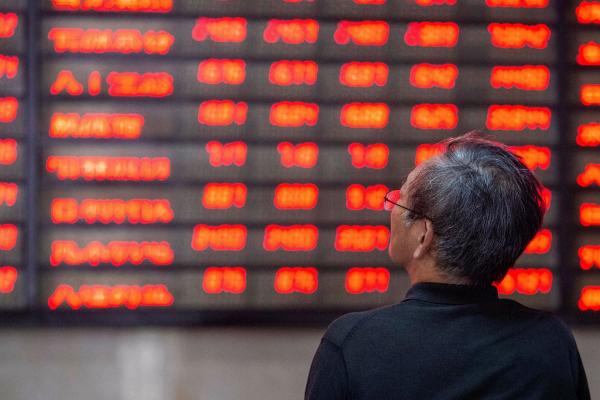If 2020 was the Year of the Bull for global tech stocks, then 2021 was undoubtedly the Year of the Bear. We all remember the epic rise of Cathie Wood’s Ark Innovation Fund, which posted 400% gains over a period of less than a year in 2020, something virtually unheard of for such a diversified product as an ETF. Perhaps less unexpected was the equally epic collapse that followed, with the fund losing close to 65% of its value last year.
This trend was replicated across virtually all tech-sector growth stocks worldwide, with a couple of notable exceptions. But the effect was even stronger in China, where a combination of domestic governmental crackdowns and US delisting fears both restrained growth in 2020 and aggravated losses in 2021-2022. Nevertheless, recent developments suggest that there may be light at the end of the tunnel, prompting many investors to ask: is now the time to buy China?
China has always been a minefield for western investors. The inherent risk of the Variable Interest Entities (VIEs) used by most Chinese firms to sidestep foreign ownership regulations, the opacity of these structures in terms of auditing and reporting, and, of course, the unpredictability associated with the Chinese Communist Party’s (CCP) power over the fortunes of individual companies. All of these factors were involved in some way or another in the protracted bear market that has lasted almost 18 months, but it appears that these concerns are finally being addressed (at least in part).
Following a double-digit drop on Tuesday, Chinese tech giants Alibaba, Baidu and Tencent posted their biggest single-day gains since 2008, rising 27.30%, 20.40% and 23.15%, respectively. This comes after China’s Vice Premier Liu He commented that the government would “support various kinds of businesses’ overseas listings”, assuaging fears that China would look to block foreign investment altogether following the CCP’s release of its stringent foreign IPO rules last summer.
Timeline of trouble
The Chinese tech slide really began back in November 2020 with the crushing of the Ant Group IPO and the introduction of harsh antitrust regulations. Things then went from bad to worse with the Alibaba probe and the mysterious disappearance of Jack Ma in late December of that same year. Following the re-emergence of the Alibaba CEO and the finalisation of the new antitrust laws, it looked as if the worst was behind us.
Up to that point, the damage had been largely localised to BABA, but then the CCP turned its focus towards Tencent and Meituan, imposing Ant-style curbs on the fintech arms of these two giants and 11 other Chinese tech firms. The summer of 2021 then saw the hotly anticipated US IPO of “the Uber of China” Didi. Two short days later, Chinese regulators launched a probe into the ride-hailing leviathan, ordering it to halt new account registrations. Then came new cybersecurity rules for companies listing shares abroad, weekly limits on children’s gaming and a hefty fine for Meituan.
A double whammy
To compound matters, US regulators were running their own crackdown on Chinese tech firms throughout this turbulent period at home. Essentially, lawmakers in Washington were unhappy that many foreign companies were failing to comply with established legislation requiring all US-listed companies to submit to audits verifiable by the Public Company Accounting Oversight Board. Under the Holding Foreign Companies Accountable Act (passed in the US Senate in May 2020 and signed into law on 18 December of that same year), Chinese companies who refuse to allow accredited auditors access to the company accounts would be delisted from US exchanges after three years of non-compliance. This naturally fueled fears among foreign investors that their American Depositary Receipts would become worthless given the CCP’s extreme reluctance to allow companies to comply with the new law. Another huge sell-off then ensued as US funds and retail investors dumped Chinese stocks en masse.
So, is this the end of the downtrend, or is there more pain to come?
As we have seen over the past eighteen months, this whole episode has been full of twists and turns. Periods of cautious optimism have been followed by even deeper depths of despair. Just when we thought one negative factor had been priced in, yet another reared its ugly head. That said, the previous “recoveries” were nowhere near as spectacular as what we saw on Wednesday and Thursday (16-17 March), and there was always a persisting sense of uncertainty surrounding key issues such as foreign listings, domestic regulation and financial penalties.
Now, on the other hand, we have clarity on the legislative front both in China and the US (the HFCA and Chinese antitrust/antimonopoly laws are now finalised), and all of the major tech companies that had fallen foul of legislation have already been fined by the authorities. This most recent statement by Liu He puts to rest the last question of whether China will allow its companies to list abroad and thus represents a key turning point in this saga. So, while it’s impossible to say whether this is the definitive turning point, it is safe to say that the headwinds have definitely quietened down, and the path to growth is clear.
Enter the Dragon with Libertex
Libertex offers trading on CFDs and investing on Real Shares in big names like Alibaba, Baidu and Tencent, as well as the iShares China Large Cap ETF. Given the inherent volatility and near-term uncertainty of Chinese equities, leveraged trading may be risky. But the huge long-term potential and massive CAGR of this sector make it a good candidate for Libertex Invest clients. With Libertex Invest, you can enjoy zero commission and fees and receive shareholder dividends paid by eligible companies.
Risk Warning: CFDs are complex instruments and come with a high risk of losing money rapidly due to leverage. 75.3% of retail investor accounts lose money when trading CFDs with this provider. The value of investment in stocks and shares can fall as well as rise. Market spreads apply. You should consider whether you understand how CFDs work and whether you can afford to take the high risk of losing your money.
Jurisdictional limitations: Libertex Invest is only available in EEA countries.


